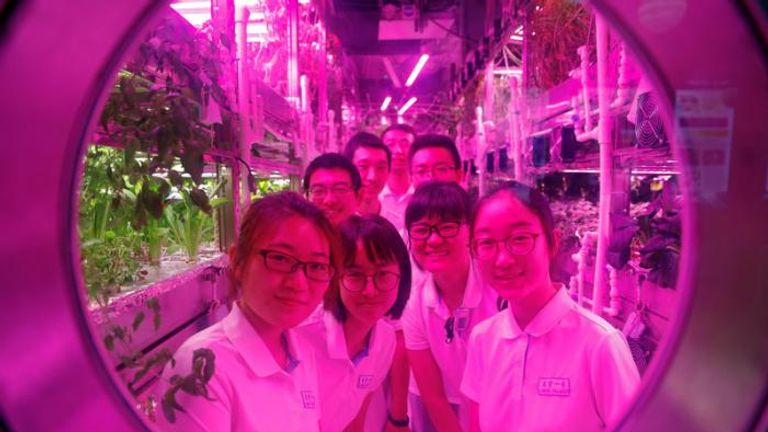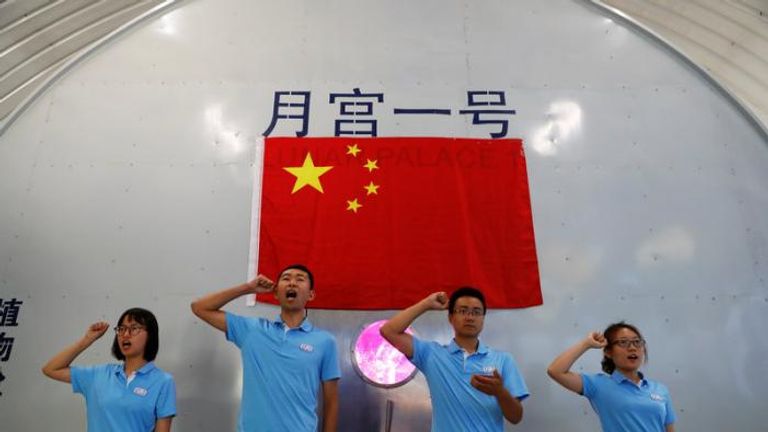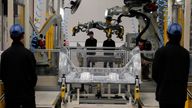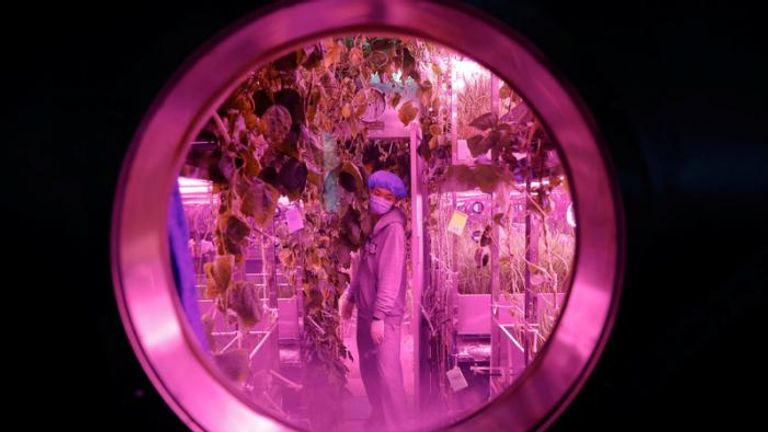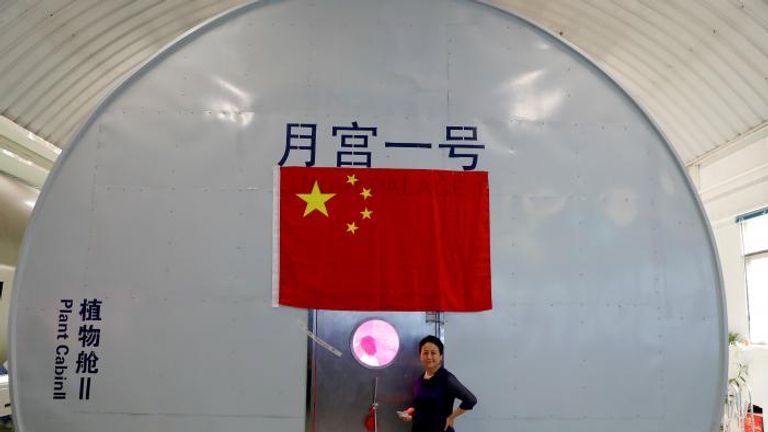Chinese students to live in self-sustaining 'space station' for 200 days as part of test
The test comes as President Xi Jinping aims for China to compete with other nations in terms of space exploration and technology.
Monday 10 July 2017 10:39, UK
University students in Beijing have been locked into two bunkers for 200 days, during which time they'll be recycling everything - even their urine - to simulate living in a space station or on another planet.
The students are contributing to the Lunar Palace 365 Project, which is exploring how humans could create a self-sustaining ecosystem to provide the necessities for human survival beyond Earth.
Four students from the Beijing University of Aeronautics and Astronautics entered the bunkers on Sunday and will remain there for 200 days.
"I'll get so much out of this," said PhD student Liu Guanghui. "It's truly a different life experience."
Eleven Chinese nationals have travelled in space, the same number as Germany and Japan. Only Russia and the US have flown more, with 118 and 337 respectively.
President Xi Jinping has stated that he wants China to compete with both Russia and the US in terms of space exploration.
China intends to send the world's first probe to the dark side of the moon by 2018, and to again land astronauts there by 2036.
If projects such as Lunar Palace 365 are successful, they could allow China to establish a permanent off-planet base of operations.
Professor Liu Hong, the principal architect behind the project, said her team had calculated everything needed for human survival.
"We've designed it so the oxygen (produced by plants at the station) is exactly enough to satisfy the humans, the animals, and the organisms that break down the waste materials," she said.
For the students, however, having their physical needs met is only part of the challenge. The psychological impact of confinement is also a significant issue.
"They can become a bit depressed," Professor Liu said. "If you spend a long time in this type of environment it can create some psychological problems."
A series of daily tasks has been mapped out for the students, which should help with the mental impact, the project's support team said.
